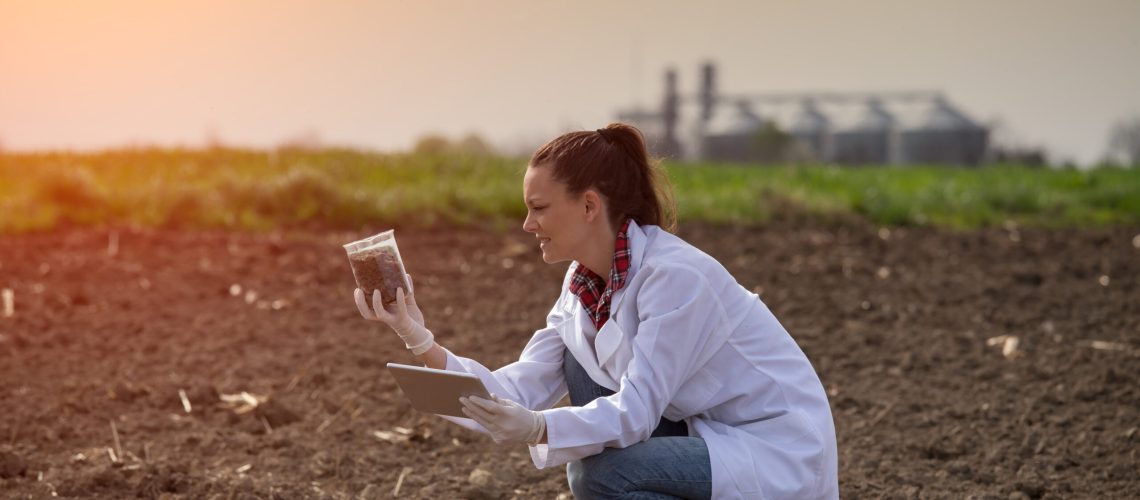Microbes are vital to attaining healthy, nutrient dense soil. With the degradation of our soils becoming more and more alarming, scientists all over the world are researching to learn more about these living creatures and how they work in our soils. In lieu of the important role soil microbes play in the ecosystem, they have been the subject of numerous microbiology research topics for undergraduates, graduate students, and professors. Microbiome research studies caution that we do not have much time left to correct the damage that has been done to our earth’s soil.
To address this environmental crisis, the microBIOMETER research team worked tirelessly to get their patented, groundbreaking soil test ready for market. The microBIOMETER test was developed with the need in mind to deliver a device that could be manufactured very reasonably so that it could service the whole world. For over 50 years, soil microbiome studies have shown that microbes are the best indicator of soil health. There are over two million articles in various microbiological research journals that have reported this. There are many soil testing methods out there but a common one used by researchers is Chloroform Fumigation Extraction (CFE). This soil test is performed in a lab setting and is quite expensive, therefore, an unattainable option for most growers. However, there are numerous microbiome news reports showing that CFE correlates very well with soil health, soil nitrogen and soil carbon. Another soil microbial testing method people use to assess soil microbial life is microscopy. However, in addition to the limited accessibility and high cost of obtaining a microscope, microscopy detects only a fraction of what can be detected with microBIOMETER.
microBIOMETER allows users to quickly determine if they are achieving the improvements they are looking for. They can track soil microbial activity over time and determine how it varies with practice to assess what is working and what is not. With an innovative, yet inexpensive soil biological test like microBIOMETER, growers can sample more per acre allowing them to acquire a detailed understanding of their crops. With the ease of multiple sampling combined with data storage, users can view year over year or season over season results to see if their soil microbiology is increasing and if their soil health is increasing as a result. It is important that the microbiology increases because there’s an incredibly high correlation between soil biology and soil health.
Currently, microBIOMETER soil testing kits are being sold all over the world and being used in numerous microBIOMETER studies by farmers and academics alike. Customers begin with the 10-Test microBIOMETER Starter Kit which contains all the supplies necessary to perform ten soil tests. If they require additional testing supplies, they can purchase a microBIOMETER refill kit.
As our knowledge about the soil microbiome increases and evolves over time, new techniques in microbiome research and soil biological testing are sure to surface. Learning is continuous and soil scientists are working diligently to discover the most effective ways to reverse what has been done to our planet and our soils. The microBIOMETER work is not done yet either. We are always looking for new ways to improve our soil test by adding exciting and useful features to our app and soil testing methods.


3 thoughts on “microBIOMETER Research”
Comments are closed.